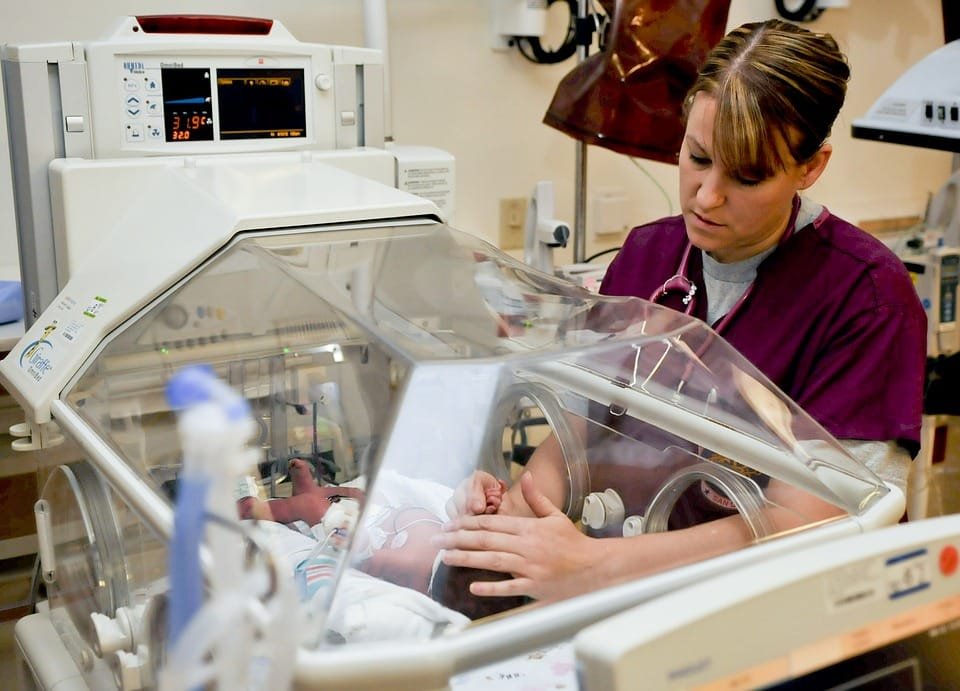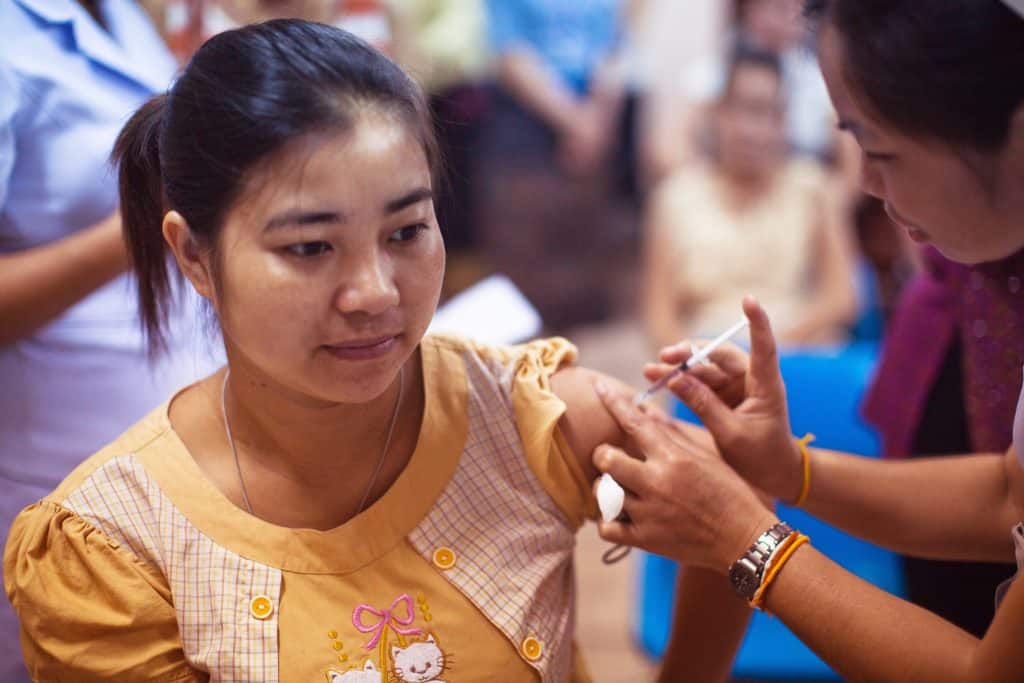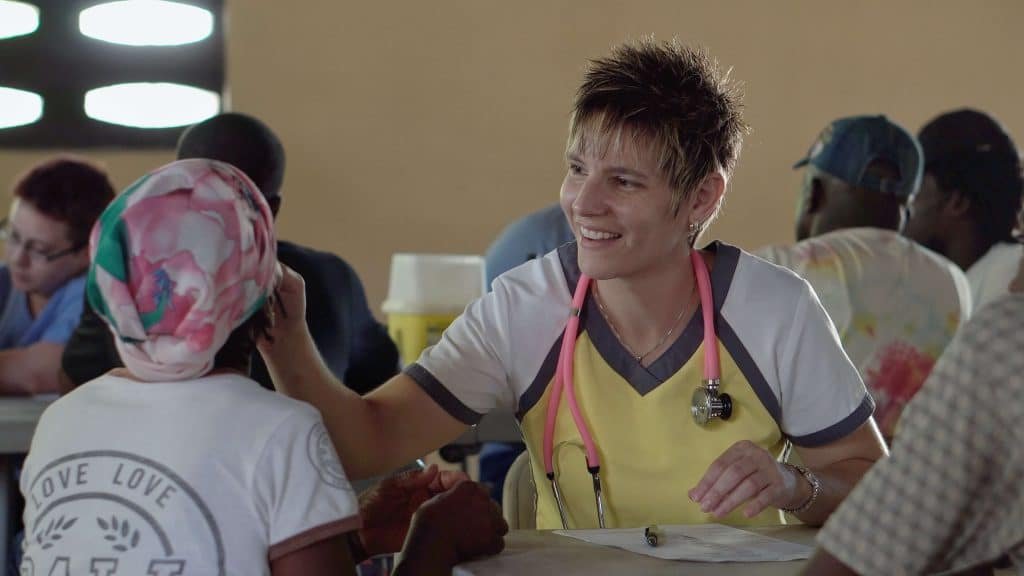Finally!!! The types of nursing careers that you have reviewed and then chosen have finally come to fruition. The years of nursing school and being a nursing student are almost over. You have received your specialized training and you are nearing graduation… and now it’s time to start your career in the nursing field. Your school may offer job placement, or you may want to check out your choices to see what types of nursing jobs are available in your area.
Fortunately, nurses are in high demand so finding a job should be easy. Local hospitals continue to expand and grow to accommodate the ever-growing population. New medical facilities are being built every day and they need qualified nursing staff.
Your education level and experience determine the different nursing jobs you are eligible for. The following list is some of the nursing jobs available and the education level needed.
The hustle and bustle of the nurses at the hospital, or our yearly checkup at the doctor’s office, can be remembered. We nostalgically look back on our kind school nurse from when we were children. While many nurses take on this role, they have a wide range of other career opportunities in different settings. The important contributions that nurses make to healthcare should not be underestimated.
As an aspiring nurse, you may be curious about the nursing specialties that are available to you. What kinds of nursing jobs are available, and which ones will you be able to get? You may ponder how far your nursing instruction will take you or how far should extend your nursing education to arrive at your ideal career.
Or what you can expect in an annual salary for your specialized training. Considering all of these details is essential when creating a plan for your future.
Different Types of Nursing Careers to Choose
When it comes to establishing a career in nursing, one can be assured that the US job growth employment job prospects will be plentiful in the upcoming years assuming they take the proper steps and earn a certification (nursing license) from an accredited school.
Acquiring either an associate’s or bachelor’s degree can provide various options within this expanding field. Additionally, even more chances will be presented if you go on to obtain your master’s degree in Nursing.
There are a variety of settings in the different types of nursing careers for you to choose from. Here are some possible occupations of nurses to consider as you start your educational journey.
Advanced Practice Registered Nurse (APRN)
Advanced Practice Registered Nurses (APRNs) are a type of nurse that provides medical care, diagnosis, and medication if necessary. This role requires an MSN degree to become licensed since it involves an increased scope of practice compared to registered nurses. APRNs can diagnose and treat illnesses, order tests, prescribe medications, and provide patient education.
Critical Care Nurses
Critical care nurses specialize in providing high-level support to those with severe, life-threatening illnesses or injuries. They work in intensive care units (ICUs) of hospitals and other healthcare facilities, where they provide direct patient care and monitor vital signs.
Critical care nurses are highly trained professionals who must have a Bachelor of Science in Nursing (BSN) degree to practice.
Family Nurse Practitioner
Family Nurse Practitioners (FNPs) are a type of advanced practice registered nurse (APRN) who provide primary care services to patients. FNPs assess, diagnose, and treat acute and chronic illnesses and provide preventive care. They also coordinate treatment plans with other healthcare providers, order and interpret diagnostic tests, prescribe medications, and educate patients about their health conditions.
Forensic Nurse
Forensic nurses are a specialized type of nurse who provides care to victims of crime and violence. They are responsible for assessing biological evidence, such as blood, urine, or tissue samples, for criminal cases and presenting their findings in court.
Forensic nurses may also provide medical treatment to victims of physical violence or sexual assault. Forensic nurses must have an associate’s or bachelor’s degree in nursing before they can start to practice.
Geriatrics Nurse
Geriatric nurses specialize in the care of elderly patients. They provide various services, including physical and mental health assessments, medication management, wound care, and patient education.
Geriatric nurses also coordinate with other healthcare providers to ensure that their elderly patients receive the best possible care. Geriatric nurses must be knowledgeable about the unique needs of elderly patients.
This includes understanding how aging affects patients and how they can safely administer care to their patients.
Holistic Nurse
Holistic nurses combine physical, spiritual, and natural healing methods such as organic remedies for a comprehensive healthcare experience. Holistic nurses are a type of nurse that focuses on the whole person, rather than just treating physical symptoms.
They believe in treating the mind, body, and spirit as one interconnected system. Holistic nurses strive to create an environment of healing and wellness for their patients. Holistic nursing is based on the belief that health is more than just the absence of disease or illness.
Home Health Nurse
Home health nurses provide a variety of services, including administering medications, monitoring vital signs, providing wound care and dressing changes, teaching patients and their families about disease management, and helping with activities of daily living.
Home health nurses also coordinate care with other healthcare providers to ensure that the patient’s needs are met. Home health nurses must be able to work independently and have excellent communication skills to bridge the gap between their patients and their doctors.
Labor and Delivery Nurse
Labor and delivery nurses are a vital part of the healthcare team in any OB/GYN department. They provide essential care for mothers during labor and delivery, as well as postnatal care for both mother and child. Labor and delivery nurses must have excellent communication skills, as they often serve as liaisons between the patient, family members, and other medical staff.
LPN (Licensed Practical Nurse)
Licensed Practical Nurse (LPN): An LPN is a nurse who has completed a practical nursing program and has been licensed by the state Board of Nursing. They provide basic care to patients, such as taking vital signs, administering medications, and providing basic wound care. They may also assist with patient education and provide emotional support to patients and families.
Managed Care Nurse
Managed care nurses are RNs who specialize in providing ongoing care to those with chronic or terminal illnesses. They collaborate with the patient and family, helping to guarantee quality treatment while managing the illness. Managed care nurses provide a wide range of services, including monitoring vital signs, administering medications, and providing emotional support.
Military Nurse
The U.S. military requires nurses with a BSN degree to provide care for ill and wounded soldiers and personnel. Military nurses are essential to providing soldiers and personnel with quality medical care and must possess specialized expertise and knowledge.
Neonatal Nurse
Neonatal nurses are a special type of nurse who provides care for newborns, particularly those who are premature or have serious medical conditions. These nurses work in the Neonatal Intensive Care Unit (NICU) and specialize in providing specialized care to infants. They are responsible for monitoring vital signs, administering medications, performing tests and procedures, and providing emotional support to parents.
NICU (Neonatal Intensive Care Unit Nurse)
RAN NICU nurses, also known as Registered Nurse Neonatal Intensive Care Unit nurses, are specialized nurses who care for newborns that are premature or critically ill. These babies require special attention and care due to their fragile state of health. RAN NICU nurses must have a minimum of an associate degree in Nursing (ADN) or a Bachelor’s degree in Nursing (BSN).
Nurse Case Manager
Essential healthcare services are provided by nurse case managers, who form an integral component of the healthcare system. Through assessing a patient’s medical needs and creating an appropriate plan of care, nurse case managers secure quality care resources, such as doctors and hospitals, while making sure they are affordable and easily accessible to the patient.
Nurse Consultant
Nurse consultants are a type of nurse that many people may not be aware of. Nurse consultants are registered nurses who specialize in providing expert advice and guidance to healthcare organizations, medical professionals, and patients. They have extensive knowledge and experience in the field of nursing, which they use to evaluate patient care and make recommendations for improvements.
NP (Nurse Practitioner)
Most nurse practitioners work under the guidance of a physician. You will find more and more who are taking on the role of physician. They can prescribe medication, diagnose diseases, and start treatment plans. This might be a good position for someone who may want to be more independent without having all the education that a physician needs.
Oncology Nurse
Oncology nurses are specialized nurses who provide care to patients with cancer. They work closely with a team of doctors, including oncologists, radiation oncologists, and surgeons, to ensure that patients receive the best possible care. Oncology nurses provide physical and emotional support to their patients throughout their cancer journey.
Oncology nurses help patients understand their diagnosis and treatment plan, and what the best way forward would be in each patient’s case.
Pediatric Nurse
Pediatric nurses provide vital care and support for infants, children, and adolescents as an essential part of healthcare teams. Pediatric nurses provide primary and preventative care, as well as treating acute and chronic illnesses, to patients from birth to 19 years old. They usually work at hospitals, outpatient clinics, schools, and private practices in tandem with a pediatrician.
Physician’s Office Nurse
Physician Office Nurses are healthcare workers who staff private medical practices. Usually, they collaborate with other nurses, medical assistants, and doctors to provide patient care. Physician Office Nurses typically hold an associate degree in Nursing (ADN) or a Bachelor’s Degree in Nursing (BSN).
Prison Nurse
Prison nurses provide a unique and important role in the criminal justice system. They are responsible for providing preventive and routine care to those who are incarcerated, as well as helping prisoners manage existing conditions or illnesses.
Prison nurses also provide emergency medical care when inmates become sick or injured.
Prison nurses must be knowledgeable about the specific needs of those in the criminal justice system, including mental health issues, and other unknown ailments that may arise.
Psychiatric Mental Health Nurse Practitioner (PMHNP)
PMHNPs, or Psychiatric Mental Health Nurse Practitioners, are a specialized type of Advanced Practice Registered Nurse (APRN) that focuses on the assessment and treatment of patients with psychiatric and mental health disorders.
PMHNPs are required to have a master’s degree in nursing with a specialty in psychiatric-mental health nursing.
Public Health Nurse
Public health nurses are an important part of the healthcare system, as they work to improve the overall health of a community. They may research diseases and illnesses that are prevalent in a population, administer tests to detect and prevent illness, or create programs to ensure that everyone in the community receives proper healthcare.
Public health nurses also educate members of the public about proper healthcare practices and how to stay healthy, in both their diets and exercise routines.
Research Analyst
Research analysts, or nurse researchers, are a type of nurse that many people may not be aware of. These nurses are scientists who work on medical studies and industry research to help shape the future of healthcare. Nurse researchers typically have an advanced nursing degree such as a Master’s in Nursing or even a Ph.D. in Nursing.
RN (Registered Nurse)
A registered nurse (RN) is a healthcare professional who has either a bachelor’s degree or an associate degree in nursing. They are responsible for providing direct patient care, monitoring health conditions, administering medications, and educating patients about their health and wellness.
RNs work in hospitals, doctor’s offices, long-term care facilities, home health agencies, schools, and other medical settings.
School Nurse
School nurses are an important part of the educational system. They provide a wide range of health services to students, including physical assessments, immunizations, and health education. School nurses also work with teachers and administrators to ensure that students have access to the best possible healthcare.
Staff Nurse
A staff nurse works in many different settings and is a type of registered nurse. Staff nurses are responsible for giving direct care to patients, overseeing other medical staff, and ensuring that the hospital abides by all safety regulations. These nurses usually work in hospitals, rehabs, outpatient clinics, critical care units, psychiatric facilities, and other healthcare settings.
Surgical RN
Surgical nurses are a vital part of the operating room team. They provide direct patient care before, during, and after surgery. Their primary role is to assist surgeons during procedures by providing technical support and ensuring that the patient is safe and comfortable throughout the procedure.
Surgical nurses must be highly skilled to provide quality care for their patients. They must have a comprehensive understanding of anatomy.
Trauma Nurse
Trauma nurses are registered nurses who specialize in providing care to patients in critical need. They work in fast-paced patient care environments, such as emergency rooms and critical care units. Trauma nurses must be able to think quickly on their feet and provide the necessary medical attention to stabilize a patient’s condition.
Travel Nurse
Travel nurses are a unique type of nurse who offers an invaluable service to patients in need. They provide much-needed relief to hospitals and care settings that are experiencing a shortage of nurses, often working for short durations of time.
This allows them the flexibility to travel across the nation – and even the world – to work with patients in need. Travel nurses typically have at least two years of education behind them as well as experience in special needs when traveling.
Women’s Health Nurse Types of Nursing Careers
A nurse specializing in the health of women offers care to female patients. Women’s health nurses are experts in topics such as obstetrics, gynecology, reproductive health, infertility, mammography, and overall women’s well-being. They may work in OB/GYN private practices or OB/GYN care units.
When you are looking for the perfect nursing job for you, there are low-stress nursing jobs and there are ones that have you running from the beginning of the shift until the end. Find a job that suits your personality and find what you love.

















